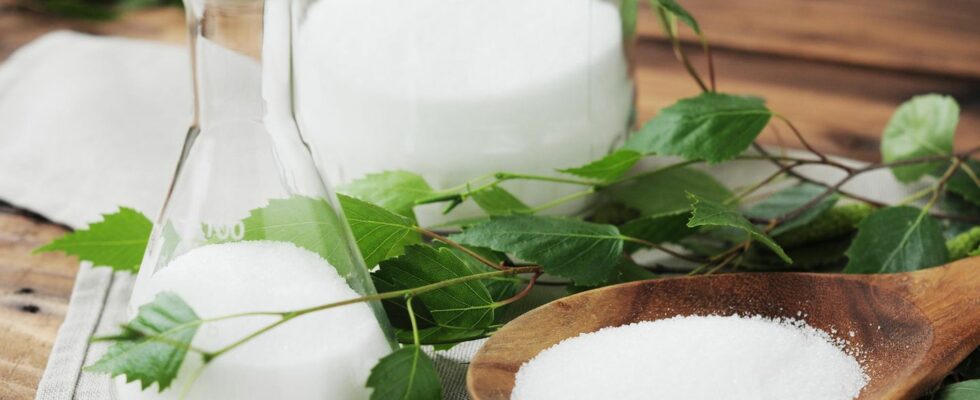Sugar substitutes
Alternatives for sugar: We do the check
© Maik Dorfet / Adobe Stock
We know that sugar isn’t good for us in large quantities. But are the alternatives better? We took a closer look at agave syrup, coconut blossom sugar and aspartame.
Oh, delicious, a little more sugar in the latte macchiato… Not bad, but not really healthy in the long run. Sugar is the master of hide-and-seek: it comes purely from plants, but too much of it increases the risk of diseases such as diabetes – and resisting its sweetness is even harder once you get used to it. It is all the more attractive that new natural substitutes and calorie-free sweeteners are constantly being advertised: agave syrup, Coconut blossom sugar and stevia, for example. But are they really better – or are they just pretending?
Aspartame: really that dangerous?
Low-calorie soft drinks usually contain aspartame, a sweetener that caused a stir in July when the WHO cancer research agency classified it as “possibly carcinogenic.” Sounds worrying, but Professor Dr. Martin Smollich from the Institute of Nutritional Medicine at the University Hospital of Lübeck gives the all-clear: The newly evaluated studies did show changes in the genetic material DNA, but only in cell cultures and in laboratory tests with extremely high sweetener concentrations – significantly higher than the limit value for aspartame of 40 mg daily per kilogram of body weight; Just to exceed that, a 70-pound person would have to consume 21 liters of “zero” drinks.
Nevertheless, Smollich recommends: “The best drink is sweetener-free and sugar-free.” However, according to the expert, sweeteners could be a bridge to escape the metabolic effects of sugar.
But, and this is important to know: Even if you can save calories with sweeteners such as aspartame, cyclamate, saccharin or stevia, the pounds rarely fall off. Long-term use even increases the risk of weight gain and severe obesity, according to a new WHO guideline. In adults, long-term consumption is associated, among other things, with an increased risk of type 2 diabetes and cardiovascular diseases. The reasons for this are not yet clear.
Sweeteners are also suspected of damaging the intestinal flora. A 2021 study showed that, among other things, aspartame can negatively affect intestinal bacteria – some were able to overcome the intestinal wall and trigger infections in the bloodstream or other organs.
What can erythritol & co do?
And what about sugar substitutes? Like the sweeteners, the sugar alcohols isomalt, sorbitol, xylitol, erythritol & Co. are tooth-friendly, lower in calories than sugar and have no effect on blood sugar levels. Their disadvantage: They can lead to flatulence, abdominal cramps and diarrhea. And: Regular consumption of products sweetened with sugar substitutes gets children, especially children, used to the sweet taste.
Birch or coconut blossom sugar are also not an alternative. Birch sugar is nothing other than xylitol, a chemically produced substitute using wood chips as the starting material. Coconut blossom sugar, on the other hand, consists largely of sucrose, i.e. “normal” sugar. Its vitamin content, which is often praised as “healthy”, is negligible in terms of quantity, and the long transport route is ecologically questionable.
The dried fruit trick
“Without added sugar”: We often find this tempting reference on “energy bars” or “fruit balls”. However, if you look at the nutritional information, you will often discover a sugar content of over 50 percent. How can that be? Dried fruits have a lot to offer, honey or thick fruit juices such as agave syrup, apple or pear syrup sound good, but they are nothing more than concentrated sugar, often with alarmingly high fructose levels. And that can lead to fatty liver disease.
The only thing that’s really healthy is to gradually get used to “less sweet” foods: that’s what the German Nutrition Society recommends. This means: study ingredient lists, choose consciously, and don’t cheat yourself. In the end you will be richly rewarded: at the latest when you put a single blueberry in your mouth and notice its natural sweetness. No, sugar is not evil. But those who enjoy it in moderation experience more intense happiness.
For further reading Reinhild Berger: “Sugar: Sweet knowledge for practice” (160 pages, 19.80 euros, Scientific Publishing Company Stuttgart)
